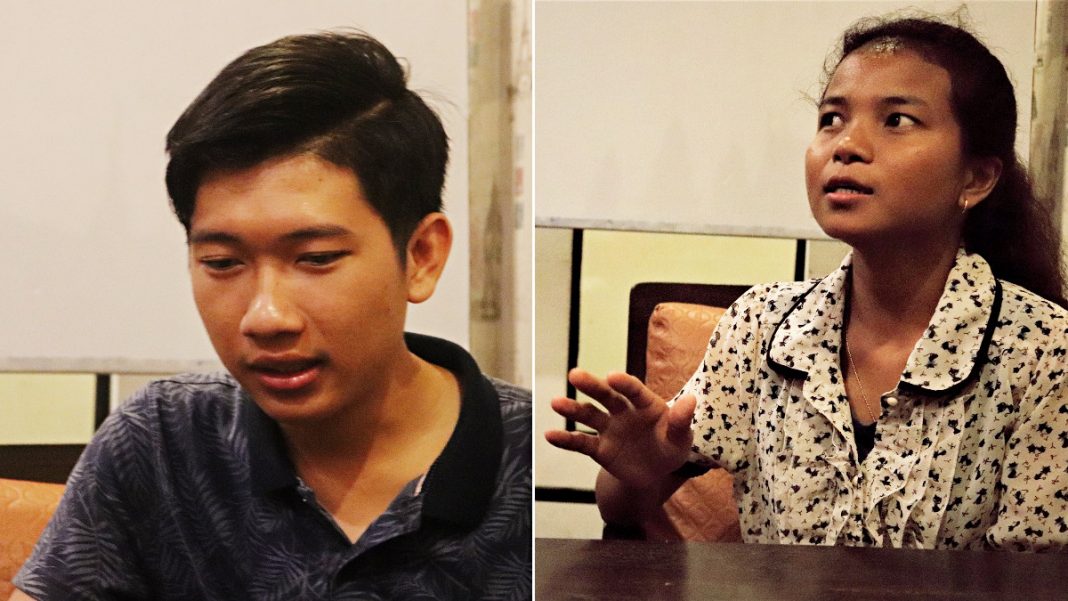Two young philosophy authors say they write books because they want to help youths who are dealing with depression, lose their way in life or become influenced by “poisonous” people.
Set Hatha, writer of “The Breath,” and Souy Linpao, a 21-year-old who has written about social justice and solidarity, are among a new generation of popular writers whose messages are resonating with many young people in Cambodia.
Hatha, who writes under the name Kon Chapmeas, says that youth extremism is a growing danger in society. Extremist youth want to help the country, but forget to improve their own abilities through knowledge and research. They are prone to depression, becoming lost without a plan for their lives and falling under the influence of poisonous people, she says.
Because they lack experience, they heed the words of others; they want success without having basic knowledge, so they try without direction and fail. “They won’t take it step by step, and instead seek the goal quickly and do stupid things based on the persuasion of others. The result is getting cheated by poisonous people,” Hatha says.
In one of her stories, she tells of when she first arrived in Phnom Penh. She was cheated by her employer, made to work without getting paid.
Her books focus on the importance of basic knowledge, being well-prepared in making plans, and not getting cheated by other people.
She says that for her, books allow her to express something closer to what’s in her mind and heart than when she speaks, because she can spend time to think about her words and edit what she writes. Books are also a way to record the wisdom of older generations that have not been written down, she adds.
Linpao, meanwhile, sees the role of his short stories and novels as presenting to society a reflection of itself. “Books are a mirror of society. To be a young person with potential, we need to read critically, write and analyze facts,” he says. He observes that people must enhance morality, social justice and solidarity to build the nation.
In his short story, “Frog Complaint,” he says that once upon a time frogs, other animals and plants faced the same dilemma: They were running out of water. Therefore, they came together to fight against the god Ta Prom to force him to make it rain. However, today, only frogs are still in need of rain while the others already have some water, the story says, reflecting on the difference between social classes. Therefore, solidarity fails to appear, it says. In the end, Ta Prom uses his power to hurt all of the frogs. Readers are struck by a message of social justice and solidarity and the importance of working together.
“All books are valuable and meaningful to change our perspectives, a path to train your mind,” he says.
Additional reporting by Houy Mengteang and Ly Misan












